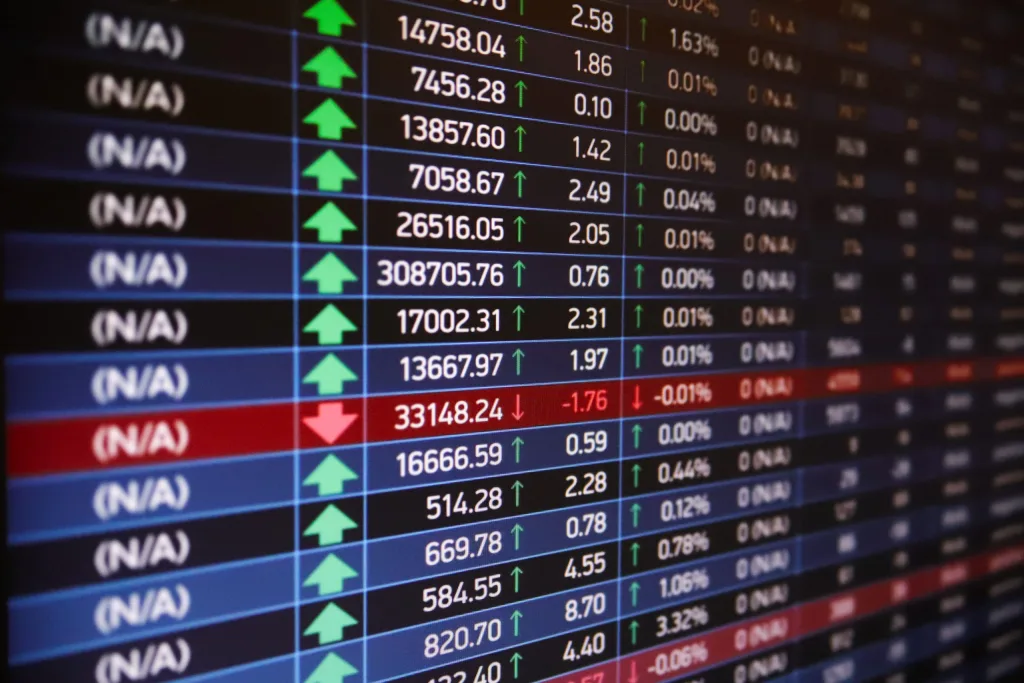Can AI Really Predict the Stock Market?

In the ever-evolving finance landscape, the allure of predicting the stock market has been a persistent quest for investors and analysts alike. Traditionally, this endeavor relied heavily on human intuition, analysis of historical data, and complex mathematical models. However, the game has changed with the advent of Artificial Intelligence (AI). AI-powered algorithms promise to revolutionize stock trading, offering the potential for faster, more accurate predictions. But amidst the hype, the fundamental question remains: Can AI really predict the stock market? Let’s dive deeper into this intriguing topic and explore the role of AI in stock trading.
The Promise of AI in Stock Trading
AI encompasses a range of technologies, including machine learning and deep learning, which enable computers to analyze vast amounts of data, identify patterns, and make predictions with remarkable accuracy. In the realm of stock trading, AI algorithms hold the promise of outperforming traditional methods by leveraging big data analytics and advanced mathematical models.
One of the key advantages of AI for stock trading is its ability to process and analyze enormous datasets in real time. By scanning news articles, social media feeds, financial reports, and market trends, AI algorithms can identify patterns and correlations that may elude human analysts. Moreover, AI can adapt and learn from new information, continuously refining its strategies and improving its predictive capabilities over time.
The Reality of AI in Stock Trading
While the potential of AI in stock trading is undoubtedly intriguing, the reality is more nuanced. Despite significant advancements in AI technology, predicting the stock market with absolute certainty remains an elusive goal. The inherent complexity and unpredictability of financial markets pose formidable challenges, even for the most sophisticated AI algorithms.
One of AI’s primary limitations in stock trading is the presence of market inefficiencies and irrational behavior. Many factors, including economic indicators, geopolitical events, investor sentiment, and psychological biases, influence financial markets. While AI algorithms excel at analyzing data and identifying patterns, they may struggle to interpret the human element of market dynamics accurately.
Moreover, the emergence of high-frequency trading (HFT) has intensified market volatility and competition among algorithmic traders. In this hyper-competitive environment, AI-powered trading algorithms must contend with other algorithms vying for market supremacy, leading to rapid price fluctuations and unpredictable outcomes.
The Role of Human Expertise
Despite AI’s remarkable capabilities in processing and analyzing data, human expertise remains indispensable in stock trading. While AI algorithms can identify patterns and trends, human traders possess intuition, judgment, and domain knowledge that are difficult to replicate artificially.
Human traders can contextualize market data, interpret complex signals, and factor in qualitative information that AI algorithms may not readily capture. Additionally, human traders can adapt to changing market conditions, exercise discretion, and mitigate risks based on their experience and expertise.
Moreover, the human element in stock trading extends beyond individual traders to include regulatory oversight, ethical considerations, and market stability. As AI technologies continue to evolve, it is essential to ensure that they are deployed responsibly and ethically to uphold the integrity and fairness of financial markets.
The Hybrid Approach
Rather than viewing AI as a panacea for stock trading, a more pragmatic approach involves integrating AI with human expertise to achieve optimal results. This hybrid approach combines the computational power of AI algorithms with the intuition and judgment of human traders, leveraging the strengths of both to navigate complex market dynamics effectively.
For example, AI algorithms can identify potential trading opportunities based on data analysis, while human traders can evaluate the feasibility of these opportunities, assess the underlying risks, and execute trades accordingly. By harnessing the complementary strengths of AI and human intelligence, investors can enhance their decision-making processes and improve their overall performance in the stock market.
Ethical Considerations
As AI technologies continue to reshape the landscape of stock trading, it is essential to address the ethical implications of their deployment. AI-powered algorithm trading strategies can amplify market volatility and contribute to systemic risks if not properly regulated and monitored.
Moreover, the use of AI in stock trading raises concerns about algorithmic bias, transparency, and accountability. AI algorithms may inadvertently perpetuate biases present in the underlying data or produce results that are difficult to explain or interpret. Ensuring fairness, transparency, and accountability in algorithmic trading is paramount to maintaining trust and confidence in financial markets.
Regulatory bodies and industry stakeholders play a crucial role in establishing guidelines and standards for the responsible use of AI in stock trading. By implementing robust governance frameworks and compliance measures, policymakers can mitigate the potential risks associated with algorithmic trading and promote market integrity and stability.
The Future of AI in Stock Trading
Despite the challenges and limitations, the future of AI in stock trading appears promising. As AI technologies advance, we expect to see further innovation in algorithmic trading strategies, risk management techniques, and predictive analytics.
Additionally, democratizing AI tools and platforms has empowered individual investors and small-scale traders to access sophisticated algorithms and data analytics capabilities previously available only to institutional players. This democratization trend is leveling the playing field and reshaping the dynamics of stock trading in profound ways.
Looking ahead, AI is poised to play an increasingly central role in shaping the future of finance, driving efficiency, innovation, and market liquidity. While AI may not possess the ability to predict the stock market with absolute certainty, its integration with human expertise offers a potent combination that can unlock new opportunities and drive sustainable growth in the global economy.
Conclusion
In conclusion, the question of whether AI can truly predict the stock market is not straightforward. While AI algorithms promise faster, more accurate predictions, they also face significant challenges and limitations in navigating the complexities of financial markets. Human expertise remains indispensable in interpreting market dynamics, exercising judgment, and mitigating risks.
Rather than relying solely on AI or human intuition, a hybrid approach that integrates AI with human expertise holds the most promise for success in stock trading. By leveraging the strengths of both AI and human intelligence, investors can enhance their decision-making processes and adapt to the ever-changing landscape of the stock market.
Ultimately, the quest to predict the stock market will continue to be a fascinating journey driven by technological advances, data analytics, and human ingenuity. While AI may not possess the ability to predict the stock market with absolute certainty, its integration with human expertise offers a potent combination that can unlock new opportunities and drive innovation in the world of finance.








